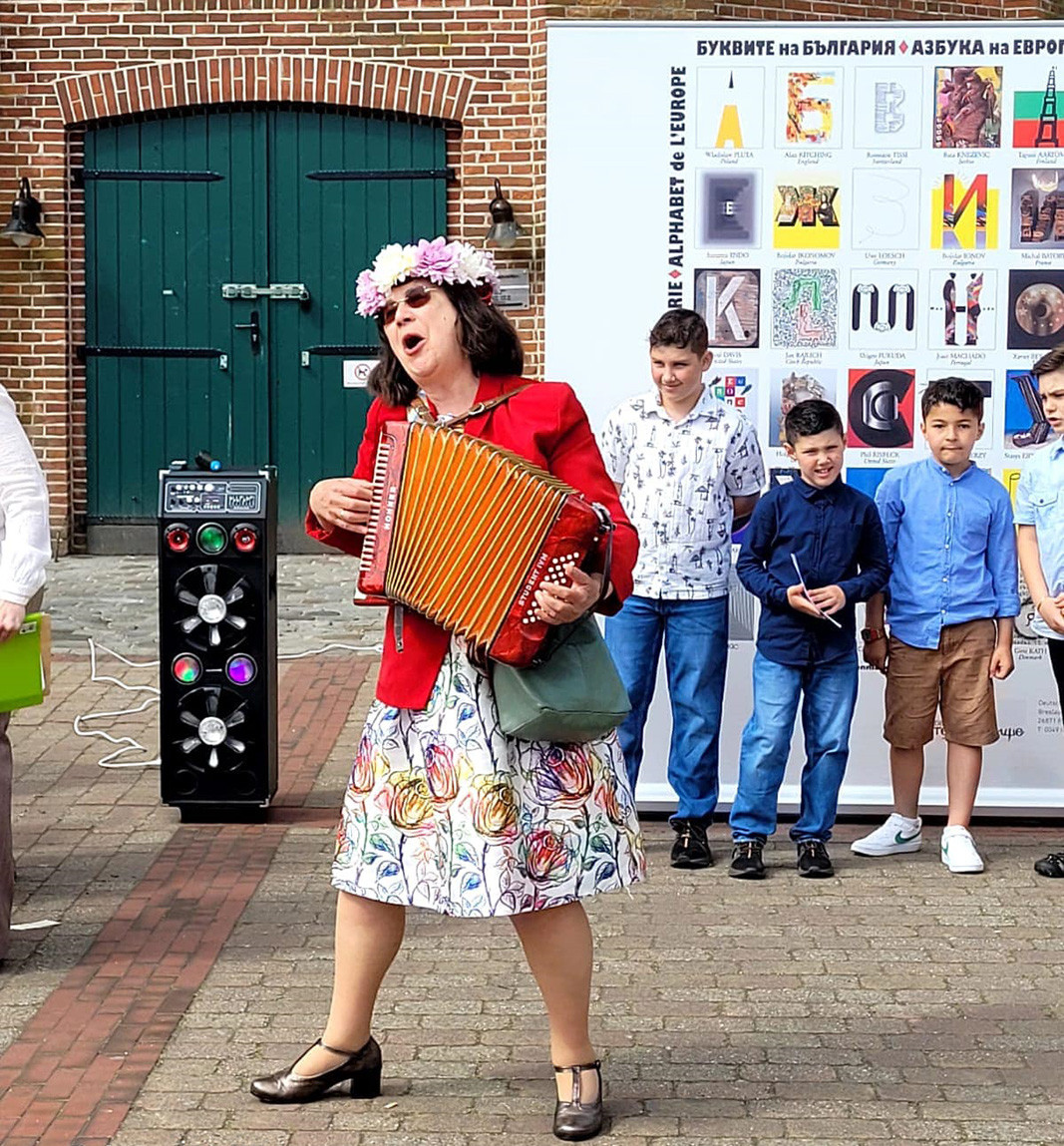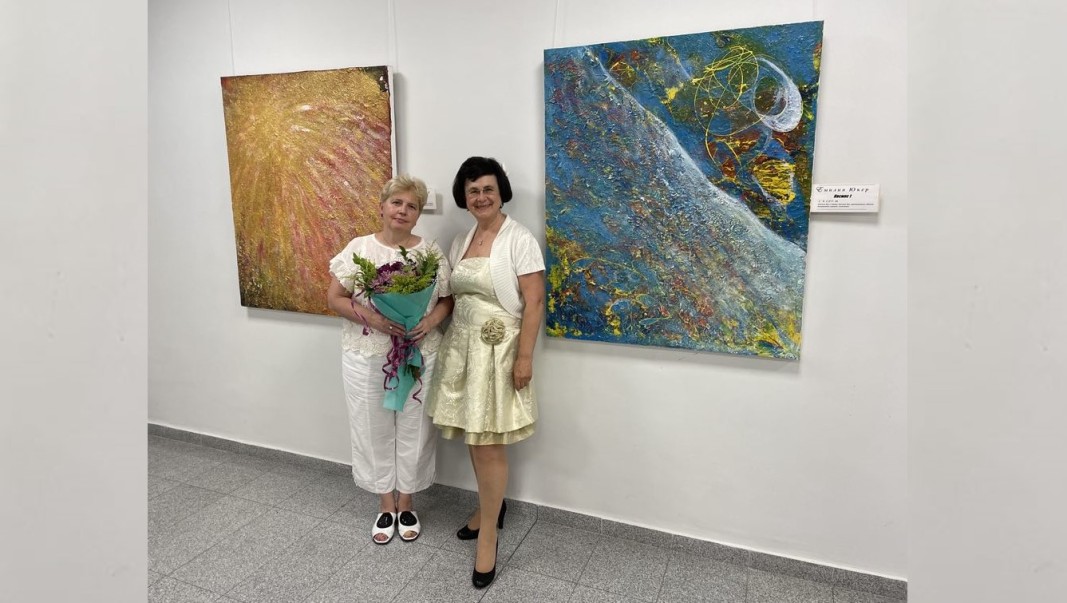The Day of the Christian Family is an annual event that brings Bulgarians in Hamburg together. 2025 is no exception, with invitations having been circulating on social media for some time, as this year marks the 20th anniversary of the establishment of the Club of Bulgarian Women and Families. This club serves as a meeting place for Bulgarians in this German city and plays a vital role in preserving Bulgarian traditions, language, and identity.

“We are truly happy to be able to gather our families and those who share our values. We collaborate with the Bulgarian church in Hamburg and Father Jakob, and we make every effort to come together for this holiday each year. It’s more than just another date in the calendar; it’s a real occasion that unites Bulgarians in Hamburg, and we have the support of many compatriots,” says Emilia Jücker, who, together with her husband Manfred, is one of the founders of the association.
The event, which the club is organising on 22 November, will feature three Bulgarian folk dance groups from Hamburg and Bremen, as well as classical and jazz musicians. The winners of the annual creative writing competition among Bulgarians in Hamburg will also be announced.
“We have put together an exhibition showing the historical development of our club from its foundation to the present day. Alongside this, we will present materials on the history of BNR-Varna, which they sent us. Many interesting Bulgarian artists are visiting, including one from Mallorca. We have support from all over the world,” adds Ms Jücker.
Over the years, the club’s members have navigated numerous challenges in their efforts to present and promote Bulgarian culture in Hamburg. The Jücker family home has often been used as a venue for gatherings, and the Jückers have frequently financed activities themselves to foster a sense of community among Bulgarians living abroad.
“Such clubs are common in Western cultures, but for us, this kind of organisation is still a new concept. I am a doctor of biological sciences and specialised in molecular neurobiology while in Germany, and I can tell you one thing: when a person stops smiling, something is already wrong. In other words, we need to create an environment that makes people happy and encourages them to bring their families along too. The challenge is that everything is expensive, and many of our events require people to contribute from their own pockets.”
“Bulgarian families here are very diverse. They have different interests, come from different regions of Bulgaria, and have different ways of speaking and dancing. That is why our groups at the club are different; they cater to people’s interests.”

Emilia Jücker underscores the community’s most important foundation: the family, shaped, she says, through consistency, emotional connection, and mutual respect. She stresses the need to pay particular attention to young people born and raised in Germany, who must navigate life between two cultures and therefore need the understanding and support of the adults around them.
“The Bulgarian families here have children who were born in Germany, but they are already feeling pressure from their surroundings. How things develop also depends on how strong an influence the parents and grandparents in Bulgaria still have, and how often the families visit. That is why we are holding a literary competition to encourage reading. Many young people come to the Bulgarian humour biennial because they want to understand who we Bulgarians are.

Those born in Bulgaria are in no less a difficult situation — we too waste a lot of energy trying to find our identity and organise ourselves in a foreign environment. This takes a toll on people emotionally. There are quite a few issues here that worry me, and I have shared them with the professional unions of Bulgarian writers and doctors. Young people are unfamiliar with a lot of the terms, and some even speak German to each other when they come to the club.
To be honest, we are seeing that the Bulgarian language is in danger of being forgotten. It is no longer valued the way we would like. This is why Bulgarian artists and singers who work with the language need to interact with young people. There are many concerts here, but they are expensive and inaccessible to many Bulgarians, who also have to pay to travel to the venue. Some don’t come because they’re very busy — work here is intense and demanding. And we also work a lot after our regular jobs; that’s what we call our free time. However, our goal is to create a sense of family together in the club.”

On 22 November, the celebration at Hamburg House will bring people, traditions, music, and emotions together, reminding us that the Bulgarian spirit is alive wherever families are united by love and togetherness.
Generation Z students (born 1995–2012) are widely using artificial intelligence in their learning, with teachers reporting that more than 85% complete homework and study with the help of digital assistants. Children tend to see AI as a partner..
This year, Christmas has "arrived" in Sofia as early as November with the aroma of mulled wine, cinnamon and festive magic. Radio Bulgaria recommends that you visit some Christmas spots in the Bulgarian capital city: For those most impatient to..
Three-time world champion and Olympic weightlifter Carlos Nasar will be holding a special event with the Bulgarian community in London on 23 November. According to the organisers, it will be an open conversation in which Nasar will discuss his journey..
From fear and doubts to joy and support – Bulgarians react differently to the upcoming introduction of the euro on January 1, 2026. For..
Kosovo is heading for early elections after nine months of failed attempts to form a government Kosovo President Vjosa Osmani has dissolved..
On November 21–22, 2025, the 11th edition of the Career Fair will take place at the John Atanasov Hall in Sofia Tech Park. The forum aims to support..

+359 2 9336 661
